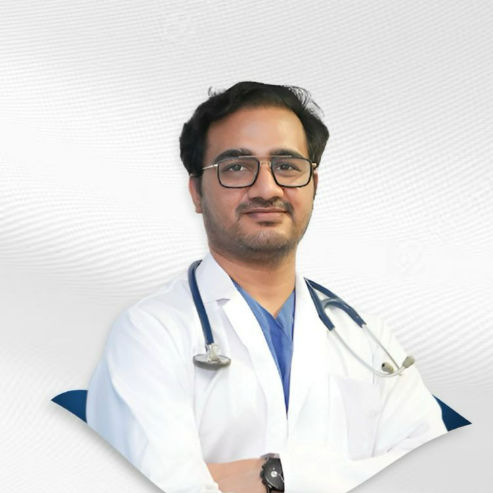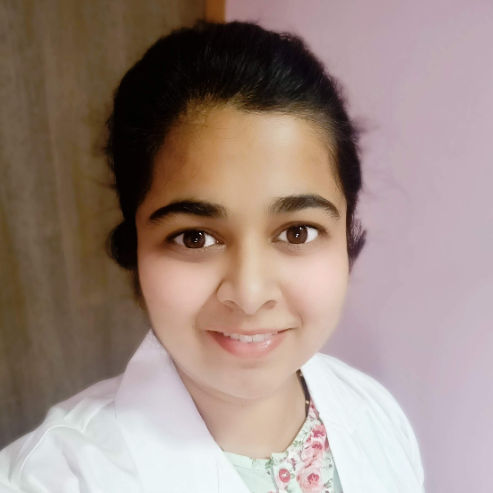Common Medicines for Heart Disease Treatment and Management
Learn about common medicines for heart disease treatment and management, including their roles in controlling blood pressure, reducing cholesterol, preventing clots, and improving heart health.

Written by Dr Sonia Bhatt
Last updated on 3rd Jul, 2025
Heart disease manifests in various forms, each affecting the heart's structure or function differently. When the heart doesn’t work efficiently, it struggles to deliver blood, oxygen, and nutrients to the body, disrupting essential functions. Thankfully, several medications are available to prevent or manage heart conditions such as angina, heart attacks, high blood pressure, and heart failure. These medicines are also effective in controlling symptoms. While some individuals may need these medications temporarily, others might require them for an extended period. Keep reading to discover commonly used treatments for managing heart-related conditions.
Common Types of Heart Disease
Before delving into medicines for heart disease, it’s important to learn about some of the common forms of heart disease. These include:
Coronary Artery Disease
Coronary artery disease (CAD) is one of the most prevalent heart conditions, impacting the primary blood vessels—known as coronary arteries—that supply the heart with blood. CAD occurs when blood flow to the heart muscle decreases due to atherosclerosis, a condition characterised by the buildup of cholesterol, fats, and other substances on the artery walls. This accumulation, known as plaque, causes the arteries to narrow, restricting blood flow.
Arrhythmia
An arrhythmia, also known as dysrhythmia, refers to an irregular heartbeat. It can originate in various parts of the heart and may be too slow, too fast, or erratic. Typically, the heart beats in a structured, coordinated manner. However, disruptions in specific areas of the heart or changes in the blood it pumps can interfere with its normal rhythm, leading to arrhythmias.
Heart Failure
Heart failure is a chronic condition where the heart struggles to pump blood effectively to meet the body's needs. Although the heart continues to function, it cannot manage the required blood flow, causing blood to accumulate in areas like the lungs, feet, and legs.
Consult Top Doctors For Heart Disease
Common Medications for Heart Disease
As mentioned above, there are several medications prescribed to treat and manage various forms of heart disease. Some of the common medications include:
ACE Inhibitors
ACE (angiotensin-converting enzyme) inhibitors prevent the production of angiotensin, a hormone responsible for narrowing blood vessels. By relaxing and dilating blood vessels, they improve blood flow, support heart function, manage blood pressure, and reduce heart failure risks. Common ACE inhibitors include captopril, lisinopril, ramipril, enalapril, perindopril, fosinopril, quinapril, trandolapril, moexipril, and benazepril.
Beta-blockers
Beta-blockers work by inhibiting the effects of adrenaline, a hormone released during stressful situations. These medications reduce the strain on the heart, improve its ability to pump blood, regulate blood pressure, lower the likelihood of heart attacks, and help prevent stress hormones from exacerbating heart failure. Additionally, they assist in maintaining a steady heart rhythm. Common beta-blockers include carvedilol, bisoprolol, nebivolol, and metoprolol succinate.
Calcium Channel Blockers
Calcium channel blockers influence the role of calcium in heart muscle contraction by disrupting its movement into the cells of the heart and blood vessels. This action helps relax the muscles, promoting better blood flow and aiding in the management of high blood pressure. Commonly prescribed CCBs include amlodipine, felodipine, nifedipine, diltiazem, nimodipine, nisoldipine, and verapamil.
Statins
Statins are medications that lower LDL cholesterol, often referred to as "bad" cholesterol, and reduce inflammation. By preventing plaque buildup in arteries, they lower the risk of heart attacks and strokes. These drugs are typically recommended for individuals who have experienced a stroke, bypass surgery, heart attack, or have conditions like diabetes. They may also be prescribed to those with high LDL levels, even if they don’t have heart disease. Commonly prescribed statins include atorvastatin, fluvastatin, lovastatin, pitavastatin, pravastatin, rosuvastatin, and simvastatin.
How Medications for Heart Disease Work?
Heart disease medications serve various purposes, such as reducing cholesterol, lowering blood pressure, or relaxing blood vessels. Regardless of how they function, these medications are generally prescribed to provide several key benefits, including:
Extending lifespan
Relieving symptoms
Enhancing quality of life
Slowing the progression of the disease
Reducing the risk of hospitalisation
Managing Side Effects of Heart Disease Medications
All medications for heart disease have the potential to cause side effects. While many individuals experience no side effects, for some, they can significantly impact daily life. Side effects may arise from the medication or from factors such as underlying conditions, fatigue, stress, or lifestyle changes. If you’ve recently started a new medication, it’s important to note that side effects may improve or even disappear over time. If you’re finding side effects difficult to manage, avoid stopping your medication without consulting a healthcare professional. Your doctor can:
Help you manage side effects.
Adjust the dosage or switch the medication if necessary.
Recommend alternative treatments.
Tips for Taking Heart Disease Medications
If you’ve been prescribed heart medications, follow these guidelines to ensure safe and effective use:
Learn the names, purposes, dosages, and potential side effects of your medications.
Keep an updated list of all your medications to share with your doctors when needed.
Take your medications exactly as prescribed, at the same time every day.
Do not stop or change your medications without consulting your doctor, even if you feel better.Abruptly stopping heart medications can worsen your condition.
Establish a routine, such as using a pillbox labeled by days, to track your doses.
If you miss a dose, take it as soon as you remember. If it’s close to the next dose, consult your doctor about whether to skip or adjust. Never take extra doses to make up for a missed one or if you're feeling unwell.
Refill your prescriptions regularly to avoid running out of medication.
Inform your doctor if you’re breastfeeding, pregnant, or planning a pregnancy, as some medications may not be safe during these times.
Understand whether your medication should be taken with or without food, and avoid substances like alcohol, grapefruit juice, or caffeine that may interfere with its effectiveness.
Avoid over-the-counter medications or supplements without consulting your doctor or pharmacist.
Lifestyle Modifications Alongside Medication
While heart medications play a crucial role in managing heart disease, incorporating lifestyle changes can significantly enhance their effectiveness and improve overall heart health. Some key lifestyle modifications include:
Adopt a heart-healthy diet rich in fruits, vegetables, whole grains, lean protein, and healthy fats.
Limit saturated fats, salt, trans fats, and sugar to reduce cholesterol and maintain blood pressure.
Incorporate moderate physical activity, like cycling, brisk walking, or swimming, for at least 30 minutes most days of the week.
Manage stress by practicing relaxation techniques such as meditation, yoga, or deep breathing exercises.
Quit smoking and limit alcohol consumption.
Maintain a healthy weight by adopting a balanced diet and exercising regularly.
Keep conditions like diabetes, high blood pressure, and high cholesterol under control.
Monitoring and Follow-up Care
Effective management of heart disease goes beyond medication and lifestyle adjustments—it requires regular monitoring and follow-up care. Schedule periodic visits with your healthcare provider to review your progress, monitor symptoms, and assess the effectiveness of your medications and lifestyle changes. Pay close attention to any new or worsening symptoms, such as chest pain, shortness of breath, or fatigue, and report them to your doctor immediately. During follow-ups, discuss your response to prescribed medications, including any side effects. Your doctor can adjust dosages or switch medications if necessary.
Conclusion
Managing heart disease effectively requires a multifaceted approach that includes the right medications, lifestyle modifications, and consistent monitoring. With advancements in medical science, a wide range of medications are now available to help prevent, manage, and alleviate symptoms of heart conditions. However, their effectiveness depends on proper adherence and timely consultations with healthcare professionals. Combining these treatments with heart-healthy lifestyle changes and regular follow-ups can significantly enhance quality of life, reduce risks, and improve long-term outcomes.
Consult Top Cardiologist
Consult Top Doctors For Heart Disease

Dr. Anand Ravi
General Physician
2 Years • MBBS
Bengaluru
PRESTIGE SHANTHINIKETAN - SOCIETY CLINIC, Bengaluru

Dr. Tripti Deb
Cardiologist
40 Years • MBBS, MD, DM, FACC, FESC
Hyderabad
Apollo Hospitals Jubilee Hills, Hyderabad

Dr. Zulkarnain
General Physician
2 Years • MBBS, PGDM, FFM
Bengaluru
PRESTIGE SHANTHINIKETAN - SOCIETY CLINIC, Bengaluru

Dr. Janjirala Seshivardhan
Cardiologist
7 Years • MBBS,DNB(GM),DM(Cardiology)
Manikonda Jagir
Apollo Clinic, Manikonda, Manikonda Jagir

Dr Nazneen Khan
Cardiologist
7 Years • M.B.B.S, M.D (MEDICINE), DrNB CARDIOLOGY
Pune
Apollo Clinic, Viman Nagar, Pune
Consult Top Cardiologist

Dr. Anand Ravi
General Physician
2 Years • MBBS
Bengaluru
PRESTIGE SHANTHINIKETAN - SOCIETY CLINIC, Bengaluru

Dr. Tripti Deb
Cardiologist
40 Years • MBBS, MD, DM, FACC, FESC
Hyderabad
Apollo Hospitals Jubilee Hills, Hyderabad

Dr. Zulkarnain
General Physician
2 Years • MBBS, PGDM, FFM
Bengaluru
PRESTIGE SHANTHINIKETAN - SOCIETY CLINIC, Bengaluru

Dr. Janjirala Seshivardhan
Cardiologist
7 Years • MBBS,DNB(GM),DM(Cardiology)
Manikonda Jagir
Apollo Clinic, Manikonda, Manikonda Jagir

Dr Nazneen Khan
Cardiologist
7 Years • M.B.B.S, M.D (MEDICINE), DrNB CARDIOLOGY
Pune
Apollo Clinic, Viman Nagar, Pune

